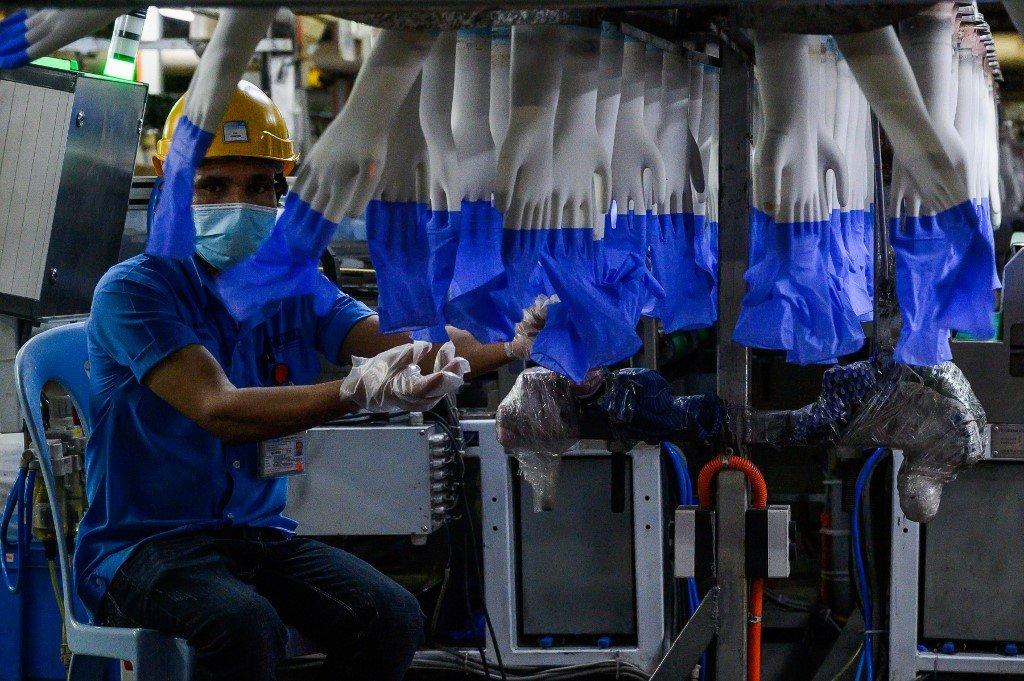Malaysian glove makers come under fire again in new BBC report
Some workers have not seen Malaysia beyond the factory premises, the report says in a series of allegations denied by Top Glove and Supermax.
Just In
Malaysia’s glove making industry which is seeing sharp profits due to a global spike in demand has again come under scrutiny from abroad over allegations of migrant workers being made to work long hours and prevented from leaving factory premises in a new report by the BBC World Service.
The report said some migrant workers had never seen Malaysia beyond factory compounds as they are not allowed to leave the premises.
“When I am outside the factory, I can see the factory police (security) roaming around and keeping an eye on where the workers are going and what they do outside.
“There are so many rules, you cannot do this, you cannot do that. We are always under pressure,” the report quoted Nish, a Bangladeshi worker with Top Glove, the world’s largest rubber glove producer, as saying.
In its response, Top Glove said the movement curbs were made in accordance with Covid-19 restrictions from the authorities and to prevent workers from making unprotected visits to town.
The report is the latest in a series of damning revelations on migrant worker welfare.
Top Glove, the world’s biggest manufacturer of rubber gloves, is among those whose profits have multiplied by billions of ringgit in the wake of the Covid-19 pandemic.
Top Glove’s profits jumped to RM2.38 billion in three months ending November 2020, from RM111 million in the same period the previous year. This was on the back of RM4.76 billion in revenue.
It made the news again late last year after a huge spike in Covid-19 cases in the country caused by thousands of Top Glove factory workers.
The latest BBC report also quotes workers from Supermax, another glove-making giant.
Speaking through an interpreter, one of them said they worked 29 days a month for 12 hours a day at one of the company’s factories.
The report said workers were also prevented from leaving the company premises where their hostels are also located.
“They told me it is really hard to wake up in the morning. All of the workers I talked to told me that it is like a prison,” said BBC’s Nepal correspondent Gani Ansari.
“They have not been able to go out of the company premises since January 2020.”
When asked for a response, Supermax told BBC it would be “suicidal” to mistreat workers and get into trouble with the Malaysian government, adding that workers are compensated for extra working hours.
One factory worker told BBC that there had been a shortage of manpower due to Covid-19.
“These days because of the pandemic, lots of people are not coming to work, so we have to do two people’s work. Work is actually much harder,” one worker said.
The report cited videos from Top Glove’s premises which it said showed footage of overcrowded workers’ hostels and staff canteens, said up to 30 people were placed in each room, where workers were seen lying on thin sheets instead of mattresses.
The claims against Top Glove are not new, and the company has repeatedly denied the allegations of modern-day slavery which have caused its products to be banned in several countries.
In 2019, US authorities banned the import of rubber gloves from Top Glove following claims of such conditions for migrant workers in its factories.
The same year, the UK’s Home Office said its investigation found strong evidence that Malaysian gloves manufacturers used forced labour.
Activists in the UK’s health sector recently charged that the government had continued to source its rubber gloves supply from Top Glove through another company based in London.
“We are effectively funding modern slavery using UK taxpayers’ money,” Dr Mahmood Bhutta, co-founder of the Medical Fair and Ethical Trade Group at the British Medical Association, said in the BBC report.
One of the indicators of modern-day slavery is workers’ salaries being used to pay off their debts for the fees incurred to secure the job.
The report meanwhile quoted Nish, the Bangladeshi worker at Top Glove, who said he had to part with 400,000 takas (about RM19,000) – more than 10 times his monthly salary – to get the job through an agent.
Nish said working in the gloves assembly line is risky due to the nature of the machines they use.
“One of my colleagues was working with a conveyor belt which then suddenly split. When he was trying to repair it, the machine cut off one of his arms,” he said.
In its response, Top Glove denied the allegations of modern slavery.
The company told BBC that an “internal audit” had cleared it of 11 forced labour indicators, except one on workers’ accommodation.
Subscribe to our newsletter
To be updated with all the latest news and analyses daily.
